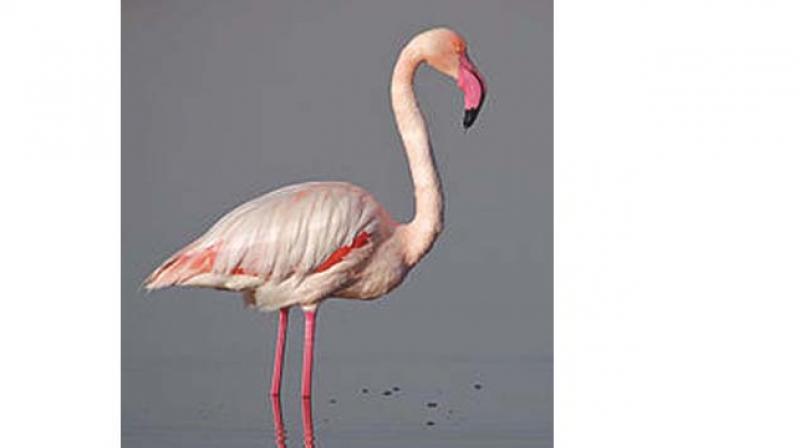Puducherry: Avian guests start descending on Oussudu
Illegal hunting of birds is a serious threat, point out locals.

Puducherry: With the dawn of the bird migration season, the famed Oussudu lake, a bird sanctuary co-managed by Puducherry and Tamil Nadu, has started welcoming its avian visitors from far off places.
Oussudu lake attracts over 20,000 birds of 40 rare species from all parts of the world every year, and the season has just started now. Ecologists, bird watchers and natives alike, have started to slowly arrive at the place to have a look at the avian guests.
Now, the Greater Flamingo from Great Rann of Kutch, is the special guest. Several more birds are expected to come in the next two months, said the organisers of the Puducherry Science Forum, who had conducted an exclusive bird watching session for children at the lake, on Sunday.
Though it was organised for children, residents of area had also joined them, said Sindhuja of Science Forum.
“The different species of birds including Spot Billed Pelicans, Painted Stork, Spoon Billed Ducks, Whistling Ducks, and Black Headed Ibis, are regular visitors to the place. We can now see about 20 different species. But, August to November is the best time for bird watching,” she added.
The Oussudu lake, spread over 800 hectares, spanning across the Union Territory of Puducherry and Villupuram district of Tamil Nadu, is an important wintering ground for migratory birds.
The lake has been identified as one of the heritage sites by the International Union for Conservation of Nature (IUCN), and is one of the most important wetlands of Asia. The lake has been declared an important bird nesting area by the Bombay Natural History Society, and as one of the 93 important wetlands by the Asian Wetland Bureau. In 2014, the lake was declared a sanctuary by the Tamil Nadu government headed by then Chief Minister, J Jayalalithaa.
Besides its glamour and sheen, there have been several complaints against the authorities accusing them of taking no measures to conserve the lake and its avian visitors even after it was declared a sanctuary.
“The lake is poorly maintained and visitors keep dumping garbage on its bunds. The heavy silt that has accumulated along the channels that feed water to the lake had resulted in reduced water inflow to the lake. This has largely affected migratory birds also. They seem to be not interested in the lake any more,” said an ornithologist.
“ More than 10 years after the lake was declared a bird sanctuary, it is only very recently that the government had started developmental activities,” he added. Illegal hunting of birds is another serious threat, point out locals.
“The birds are being trapped by adding poisonous substances in fish or grains. The fact is that the birds are poached right under the nose of the Forest Department officials,” said K Shankar, a bird lover and resident of the area.
The government should take strong action against the poachers and also protect the lake, not only for the sake of the birds, but also for conserving the local ground water level, he added.

